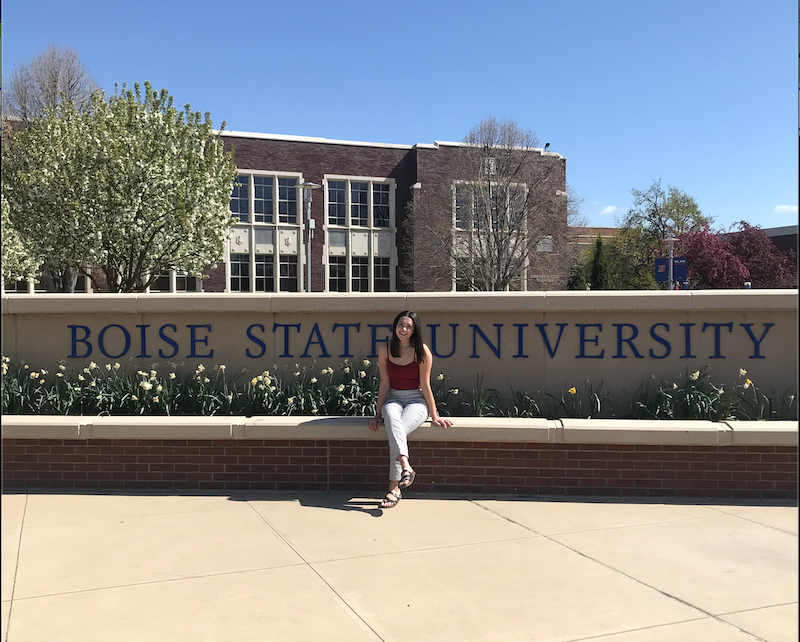
I came into my first year at Boise State convinced I knew what I wanted to do and wouldn’t need to change my major. That confidence only lasted about one and a half semesters. And I know I’m not the only one.
“Nearly 80% of Boise State students change their major at least once throughout their time in college. Approximately 50% of them do so within the first year,” Alizabeth Gaddie, the assistant director of the Advising and Academic Support Center, said in her article, “Help! My Student Has Changed Their Major Again.”
I always knew I wanted to have a career where I could write and be creative (good thing that’s currently my job as a content writer with Student Life). My love for writing started with writing short stories in elementary school, dabbling in poetry in middle school, then tackling news stories in high school. Journalism became my ideal career, so I joined my high school’s newspaper and became Editor in Chief my senior year to gain journalistic experience.
I declared my major in integrated media and strategic communications at the start of my freshman year. The emphasis in integrated media explores “journalism, live broadcast, digital media production, media content creation, and studio television,” which encompasses several of my areas of interest, but I didn’t want to go into television and broadcast journalism. I like being behind the screen, letting the words I write paint a picture and the content I create to tell a story.
If what I was studying wasn’t 100% what I wanted to pursue, I needed to change something. I firmly believe that we should spend our time doing what we enjoy. If your future career is something that you’ll get bored of or feel tied down by, why do it?
So, I decided to, essentially, create my own major. I’d never heard of such a thing, but I talked to a couple of my friends who were interdisciplinary studies (IDS) majors. I thought it could be the solution for me. Interdisciplinary studies means between (inter) disciplines (disciplinary). Students select three to four minors equivalent to a bachelor’s degree and take the intro course that helps them learn how their interests intersect. I thought, “A personalized major? Are you kidding me? That’s perfect!”
I searched the depths of Boise State’s program catalog to find what kind of minors suited me. I chose minors in journalism, communication, and plus business (foundational business skills), with a certificate in public relations. A semester later, that changed to minors in journalism and communication with certificates in plus business and content production. It could change again, but as of now, I’m satisfied with my selection.
If you feel like you’re in a similar situation to me, talk to peers to learn about their majors and ask professors or professionals in some different fields what a day in their life is like. I would still feel stuck in a major that didn’t feel completely applicable to me and my interests if I didn’t ask questions and look into other majors.
In my intro to interdisciplinary class, I read “The Generalist or Specialist“ and learned I’m a generalist. That means I have multiple interests, knowledge across various studies, and transferable skills that make me adaptable to different roles. Some people are specialists and become experts in a specific area of study, which is equally valuable because these people are in high demand.
Whether you’re a generalist or a specialist, you have quality skills to offer in whatever career setting you find yourself in. I encourage you to dabble in a couple of areas to hone in on what you love to do.
The purpose of education is learning, so now is the time to take advantage of the plethora of areas available to you in your college career to study and learn something about yourself along the way. Having a career could be the end goal, but the process of getting there is the most crucial part.
“Changing majors is common as students learn new things about themselves, navigate through their interests, identify new abilities, and develop goals for their future,” Alizabeth said.
The Advising and Academic Support Center helps with major exploration. You can book an appointment to ask an advisor questions or talk to them about your next steps. Find your advisor and talk to them about what your options are. They’re there to help you make decisions and give advice about what’s beneficial to you and your future goals.
It’s not set in stone what I’ll be doing after I graduate since my major is versatile, but that’s freeing to me because it opens the door to many possibilities. I know I can do something I enjoy, whether I’m writing books, being a journalist, recording podcasts, owning a business, creating my own blog, or a combination of all of those things.
Here’s the bottom line: it’s okay to change your major. It’s okay not knowing what exactly you want to do. It’s okay to veer away from the career path you thought you always wanted since you were young. You’re still young and have more opportunities waiting for you than you may realize.
Author
-

Molly
Content Writer